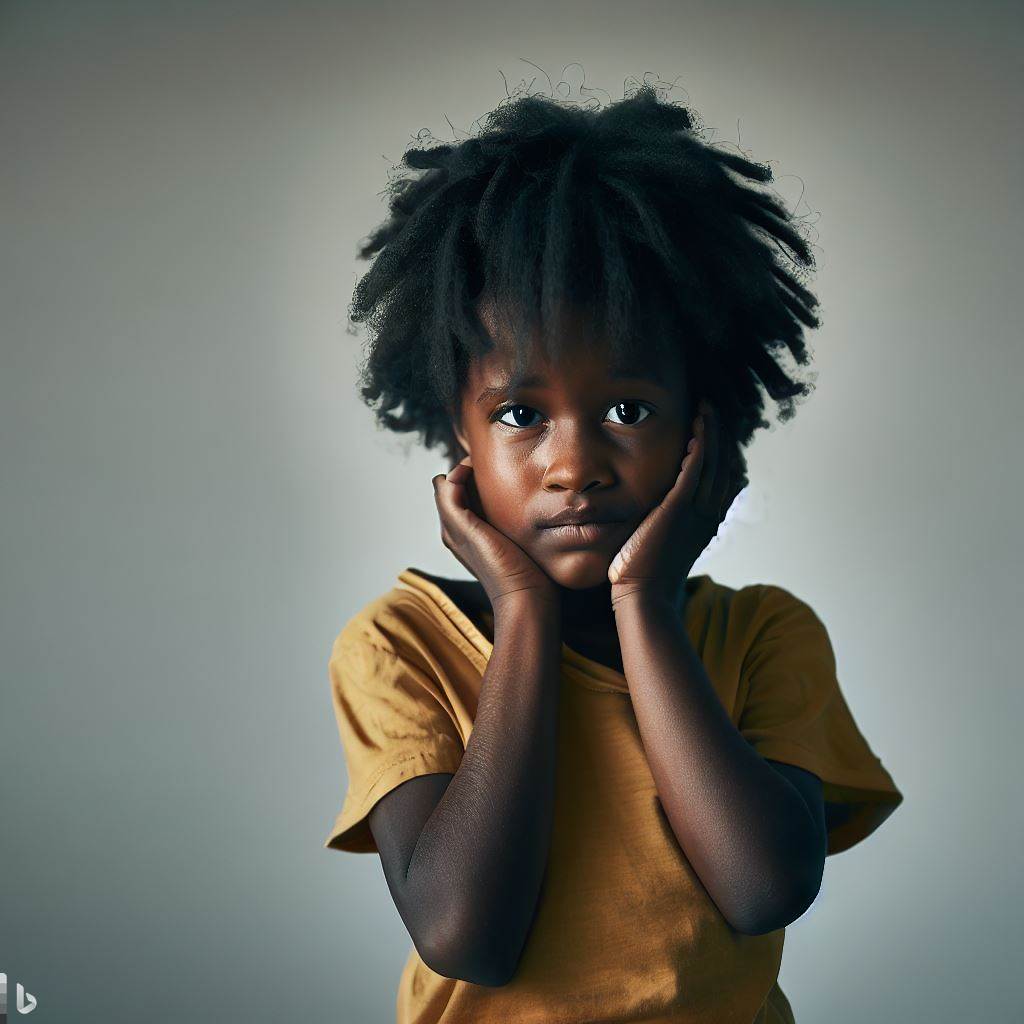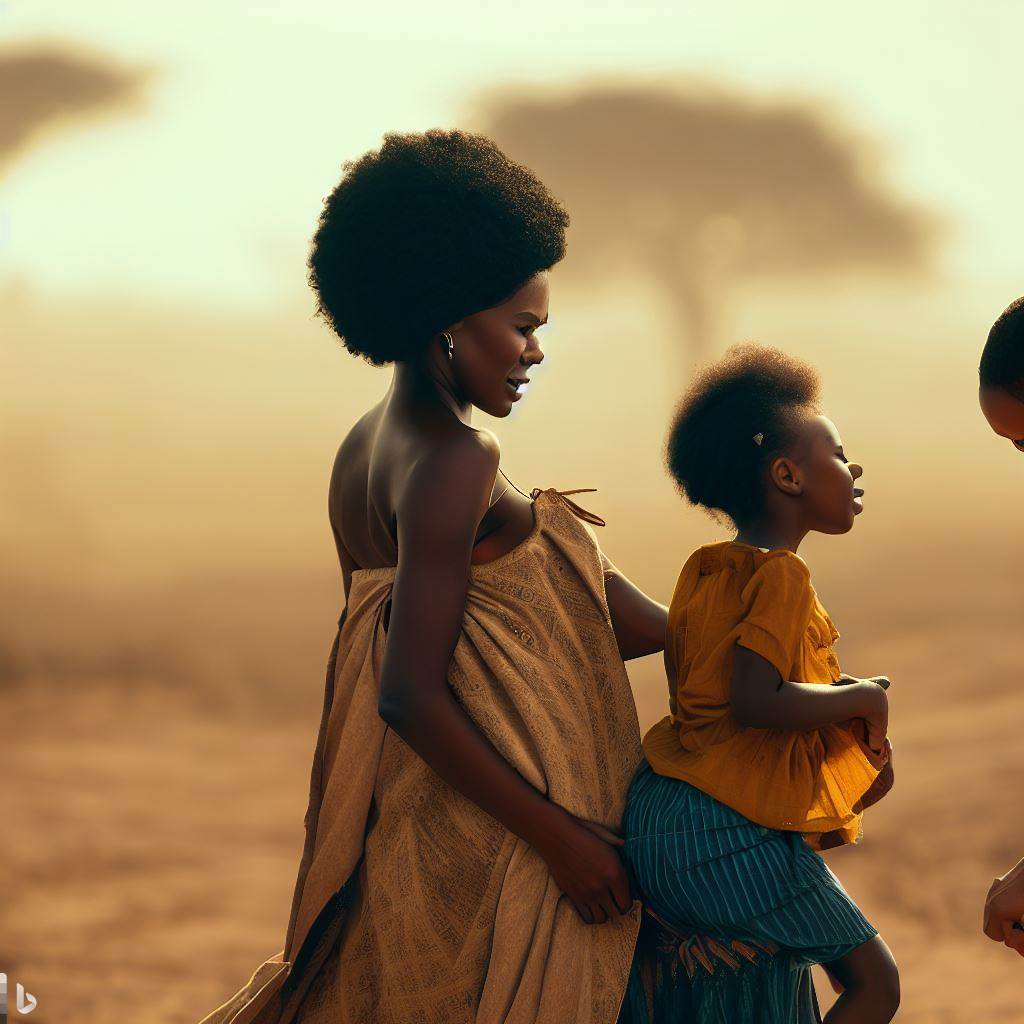Introduction
Every child, regardless of their social status or circumstances, deserves to be protected. One way to achieve this is by understanding the Child Rights Act.
The Child Rights Act is a Nigerian legislation that governs the rights, protection, and welfare of children. It was enacted in 2003 to ensure that Nigerian children have their basic needs met and are free from abuse, exploitation, and discrimination.
For Nigerian parents, understanding the Child Rights Act is critical. It helps them to know their children’s rights and how to protect them.
Parents are essential in ensuring that children’s rights are respected and that they are receiving the care necessary to thrive.
Comprehending the Child Rights Act also empowers parents to hold those in authority accountable for not upholding children’s rights.
With the Act’s provisions, parents can challenge policies and practices that harm their children’s well-being and advocate for their rights.
Therefore, the Child Rights Act is a vital piece of legislation that every Nigerian parent must comprehend.
It ensures that children are protected and provided for, and parents play a crucial role in upholding and advocating for their children’s rights.
By understanding the Act’s provisions, parents can help build a better Nigeria, where children’s well-being is a top priority.
Read: Addressing Gender Bias in Parenting: A Nigerian Perspective
Background of the Child Rights Act
Child Rights Act is a legal framework that seeks to protect and promote the rights of children in Nigeria. It is a domesticated version of the United Nations Convention on the Rights of the Child (UNCRC).
The act was first introduced in 1991 as the Child Rights Bill and was subsequently reviewed in 2003.
After many years of advocacy and lobbying by child rights activists, the Child Rights Act was finally signed into law by former President Olusegun Obasanjo on July 31, 2003.
Since its adoption, the Child Rights Act has been enforced in all states of the federation except for Sharia states, which include Kano, Katsina, Sokoto, Zamfara, and Yobe.
However, in recent times, there have been moves towards the adoption of the act in these states as well.
Parenting Made Just for You
Get personalized Parenting Solutions tailored to your child’s needs. Transform your parenting journey with expert guidance in 1-3 days.
Get StartedHistory and Evolution of the Act in Nigeria
The history of the Child Rights Act in Nigeria can be traced back to the adoption of the UNCRC by the United Nations General Assembly in 1989.
Following the adoption of the UNCRC, Nigeria became a signatory in 1991, and subsequently began the process of domesticating the provisions of the convention into the local legal framework.
The first attempt at domesticating the UNCRC in Nigeria was the Child Rights Bill of 1991.
The bill initially faced opposition from religious and cultural groups who viewed certain provisions as conflicting with their beliefs, preventing its passage into law.
In 2003, after extensive review and revision to address stakeholders’ concerns, the Child Rights Act was successfully enacted.
This achievement was largely attributed to the dedicated advocacy of organizations like the Child Rights Information Bureau (CRIB), the Civil Society Action Coalition on Education for All (CSACEFA), and the Centre for Law and Social Action (CLASA).
Adoption and Enforcement of the Act in Different States in Nigeria
As earlier stated, the Child Rights Act has been enforced in all states of the federation except for the Sharia states.
This is largely due to the fact that the Sharia legal system operates independently of the federal legal system.
However, in recent years, there have been efforts to domesticate the Child Rights Act in the Sharia states as well.
For instance, in Kano state, there was a bill to domesticate the act which was passed by the state assembly but was rejected by the governor due to protests from religious and cultural groups.
In Sokoto state, however, the act was finally adopted in May 2021 after it was passed by the state assembly.
This was hailed as a major victory for child rights activists and advocates of the act.
Therefore, the Child Rights Act is an important legal framework that seeks to protect and promote the rights of children in Nigeria.
Although it has been enforced in most states of the federation, efforts should be made to domesticate it in the remaining states as well.
Unveil the Perfect Name that Tells Your Family's Story
Let us help you find a name that embodies your family's values, traditions, and dreams. Our personalized consultation weaves cultural insights to create a name that's uniquely yours.
Get StartedThis will go a long way in ensuring that the rights of every Nigerian child are protected and upheld.
Read: Parenting and Mental Health Issues in Nigerian Context
Key provisions of the Child Rights Act
Right to education, healthcare, and protection from abuse
The Child Rights Act grants every Nigerian child the entitlement to education, healthcare, and protection against abuse, neglect, and exploitation.
Consequently, parents and caregivers bear the responsibility of enrolling their children in school and ensuring they receive appropriate medical attention.
They are also required to protect their children from physical, emotional, and sexual abuse. Failure to do so can lead to imprisonment and/or a fine.
Legal age of marriage and consent
The Child Rights Act sets the legal age of marriage for both boys and girls at 18 years. It also stipulates that no one can be forced into marriage without their consent.
This means that parents cannot give their underage daughters away in marriage, and that any marriage that takes place must have the consent of both parties involved.
Child labor laws and regulation
The Child Rights Act prohibits child labor and exploitation in Nigeria.
Children are prohibited from working in hazardous conditions or undertaking tasks harmful to their overall development.
Children below 12 years old are strictly forbidden from participating in any economic activities. Those between 12 and 16 years old are permitted to engage in light work that does not impede their education or well-being.
Rehabilitation and reintegration of child offenders
The Child Rights Act acknowledges that certain children may engage in criminal behavior due to their circumstances and emphasizes their rehabilitation and reintegration.
Children involved in offenses should be seen as in need of care, not as criminals.
They should receive education, skills training, and support to foster their responsible citizenship.
As parents, it is vital to grasp the provisions of the Child Rights Act and ensure compliance. This will not only protect our children, but also ensure that we do not run afoul of the law.
Here are some practical steps we can take:
Enroll our children in school and ensure they attend regularly
Education is a right that every child is entitled to. As parents, we must ensure that our children are enrolled in school and attend regularly.
This will not only prepare them for the future, but also protect them from abuse and exploitation that often occur when children are left to roam the streets.
Take our children for regular medical checkups
Healthcare is another right that every child is entitled to. We must take our children for regular medical checkups to ensure that they are healthy and well-nourished.
We should also ensure that they receive all necessary vaccinations to protect them from childhood diseases.
Protect our children from abuse and exploitation
As parents, we have a duty to protect our children from physical, emotional, and sexual abuse.
We should teach them about good touch and bad touch and ensure that they know how to report any form of abuse to a trusted adult.
We should also be vigilant about who our children interact with both online and offline.
Not engage our children in child labor
We must not engage our children in any form of economic activity that is detrimental to their health, education or development.
We should ensure that they have time to play, rest and study, and encourage them to pursue their interests and passions.
Support the rehabilitation and reintegration of child offenders
Where possible, we should support the rehabilitation and reintegration of child offenders. We can do this by volunteering our time and resources to organizations that provide rehabilitation services to children.
We can also advocate for better policies and practices that prioritize the welfare of children who have committed offenses.
Basically, the Child Rights Act is a crucial piece of legislation that protects the rights and welfare of Nigerian children.
As parents, we must understand the key provisions of the Act and do our part to ensure that our children are protected, educated and empowered to become responsible citizens.
Read: Teenage Pregnancy: A Silent Crisis for Nigerian Parents

Uncover the Details: Raising Children in Nigeria’s Digital Age: Pros and Cons
Challenges and Gaps in the Implementation of the Child Rights Act
The Child Rights Act (CRA) is a legal instrument that seeks to promote and protect the rights of children in Nigeria.
However, despite the enactment of the CRA, there are still several challenges and gaps in its implementation. Some of the major challenges are:
Inadequate Awareness and Understanding of the Act Among Parents and Stakeholders
The limited awareness among parents and stakeholders hampers the effective implementation of the Child Rights Act (CRA).
Parents lack knowledge of their children’s rights, hindering their advocacy.
Resolving this is vital to inform and empower parents for safeguarding their children’s rights.
Consequently, the lack of awareness contributes to widespread violations of children’s rights, including child labor, child trafficking, and child marriage.
Weak Policies and Institutional Frameworks for Enforcing the Act
Another challenge to the effective implementation of the CRA is the weak policies and institutional frameworks for enforcing the act.
The CRA mandates several government agencies to oversee its implementation and enforcement, but many of these agencies are poorly equipped and understaffed.
There is also a lack of political will to enforce the act, with many government officials showing apathy towards the welfare of children.
This has led to a situation where even when abuses are reported, they are not adequately investigated or dealt with.
Socio-cultural and Religious Factors That Hinder the Implementation of the Act
Another major challenge to the effective implementation of the CRA is socio-cultural and religious factors that hinder the implementation of the act.
In some parts of the country, traditional and religious practices often contradict the provisions of the CRA.
For instance, some cultural practices that are harmful to children, such as female genital mutilation and early marriage, are still prevalent in some parts of the country, despite being illegal under the CRA.
Some religious beliefs also promote practices that are detrimental to children’s rights, such as denying them education or medical care.
The Child Rights Act safeguards the rights of children in Nigeria, yet its implementation faces obstacles.
Challenges include limited awareness among parents and stakeholders, weak policy enforcement frameworks, and socio-cultural and religious factors.
Overcoming these challenges is crucial to protecting and promoting the rights of Nigerian children, ensuring their safety, health, and positive development.
Read: Parenting Amidst Insecurity: A Reality for Many in Nigeria
Explore Further: Parenting Styles and Challenges in Nigeria: An Overview
Implications of the Child Rights Act for Nigerian Parents
As a parent in Nigeria, it is important to understand and uphold the Child Rights Act. The act was enacted in 2003 and aims to protect the rights of children in the country.
The following are some of the implications of the act for Nigerian parents
- Parents have the responsibility to uphold the rights of their children.
- These rights include the right to education, healthcare, and protection from abuse and exploitation.
- Parents are also expected to provide for their children’s basic needs, such as food, shelter, and clothing.
- It is important for parents to be aware of the rights of their children so they can take appropriate action when necessary.
- Any violation of a child’s rights should be reported to the appropriate authority, such as the police or child protection agencies.
- Parents should also teach their children their rights so they can protect themselves from abuse and exploitation.
- Children should also be encouraged to speak up when their rights are being violated.
- Parents should collaborate with government agencies and civil society organizations to promote and enforce the Child Rights Act.
- This includes reporting cases of child abuse or exploitation as well as advocating for the rights of children in their communities.
- Government agencies and civil society organizations can also provide parents with resources and support to uphold the rights of their children.
Overall, it is important for Nigerian parents to understand and uphold the Child Rights Act.
By doing so, they can help protect the rights and well-being of their children and ensure that they grow up in a safe and healthy environment.
Conclusion
It is important for Nigerian parents to be aware of the Child Rights Act and its provisions. This act protects the rights of every child in Nigeria and ensures their safety and well-being.
The act prohibits child marriage, child labor, and other forms of child abuse. It also gives children the right to education, healthcare, and freedom from discrimination.
It is the responsibility of parents to ensure that their children’s rights are protected and upheld. This can be achieved by understanding and complying with the provisions of the Child Rights Act.
We encourage all parents to take the time to educate themselves about this act and to apply it in their daily lives.
Let’s work together to create a better future for our children, where their rights are respected and protected.




